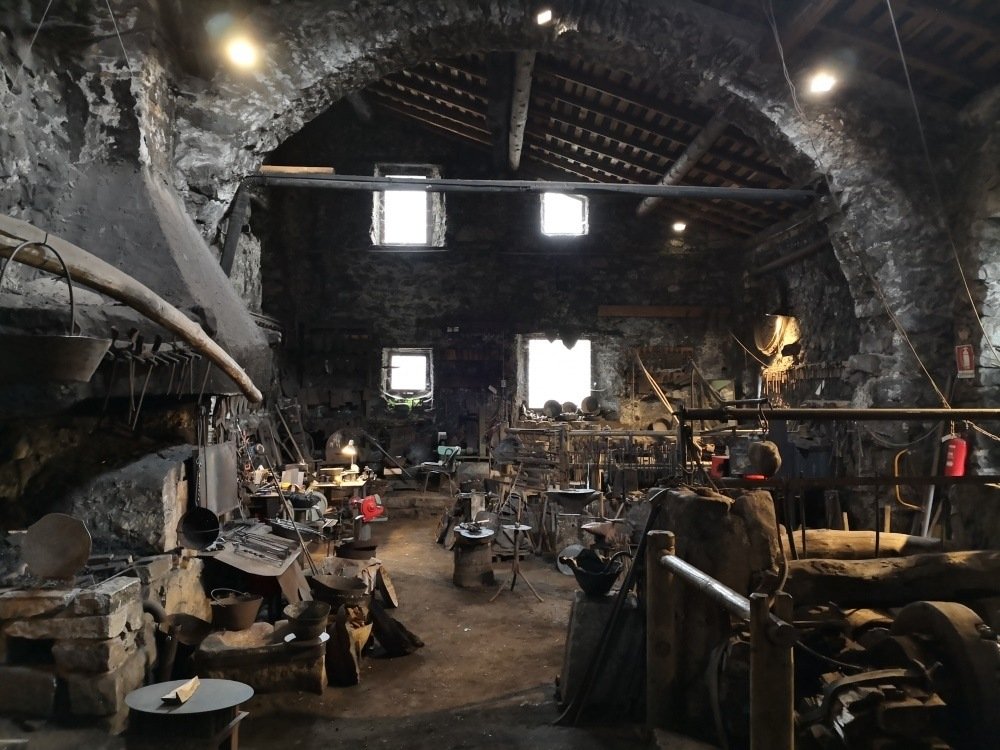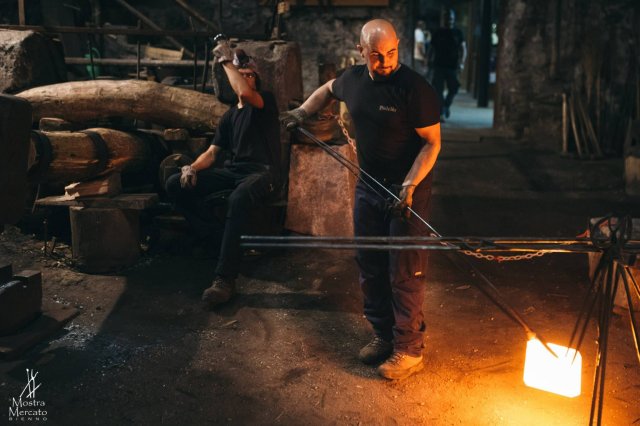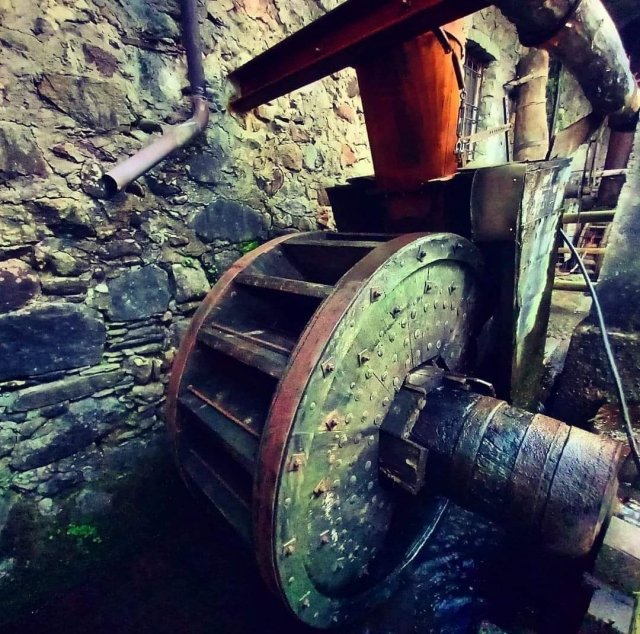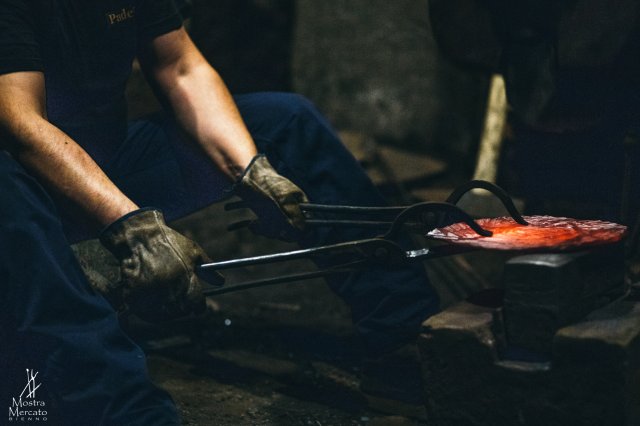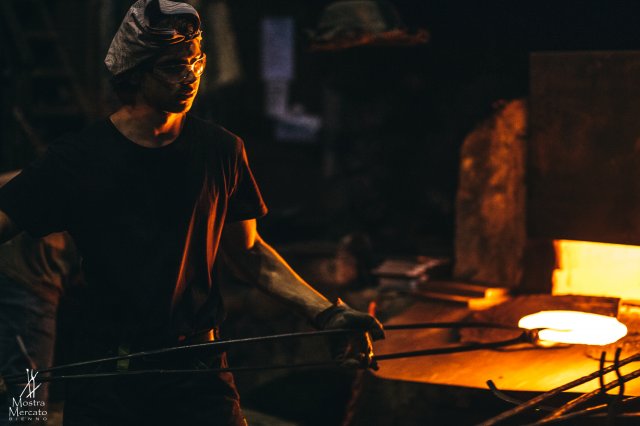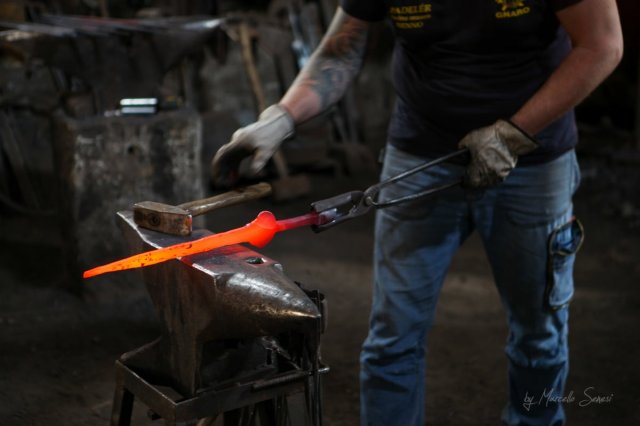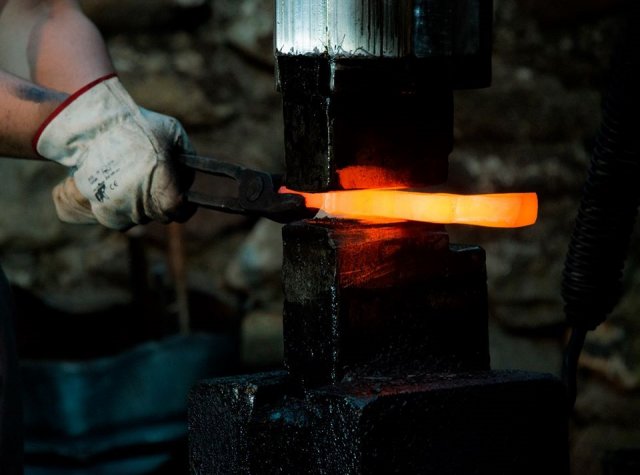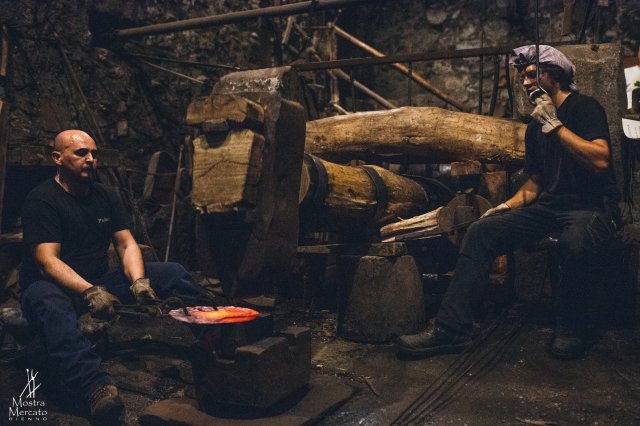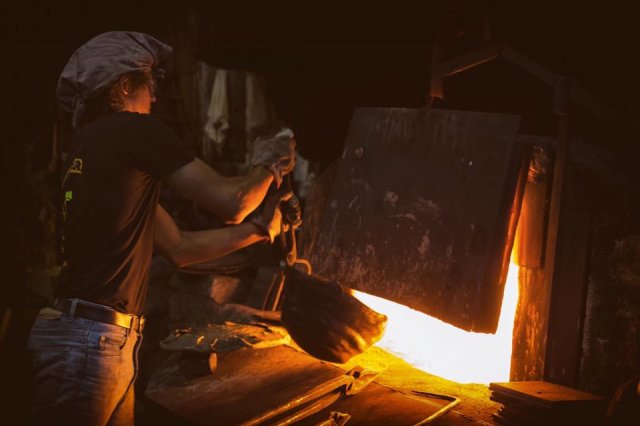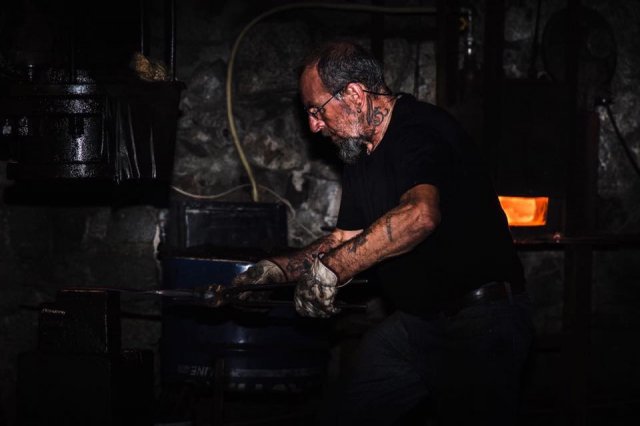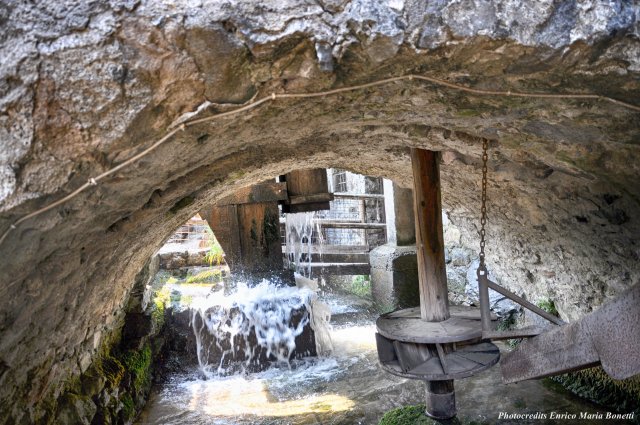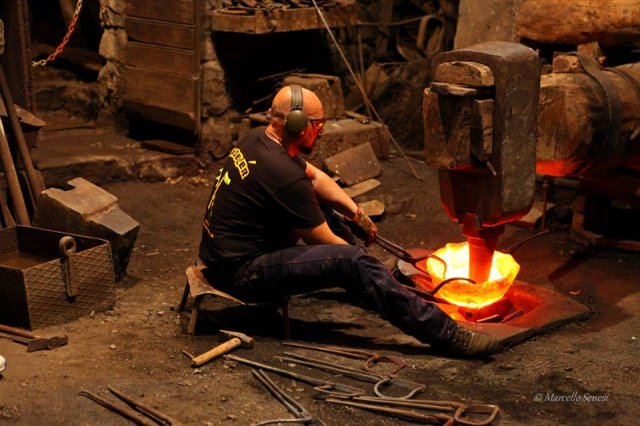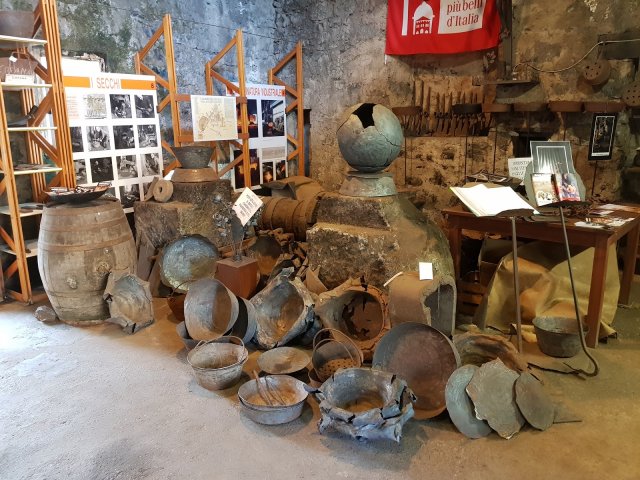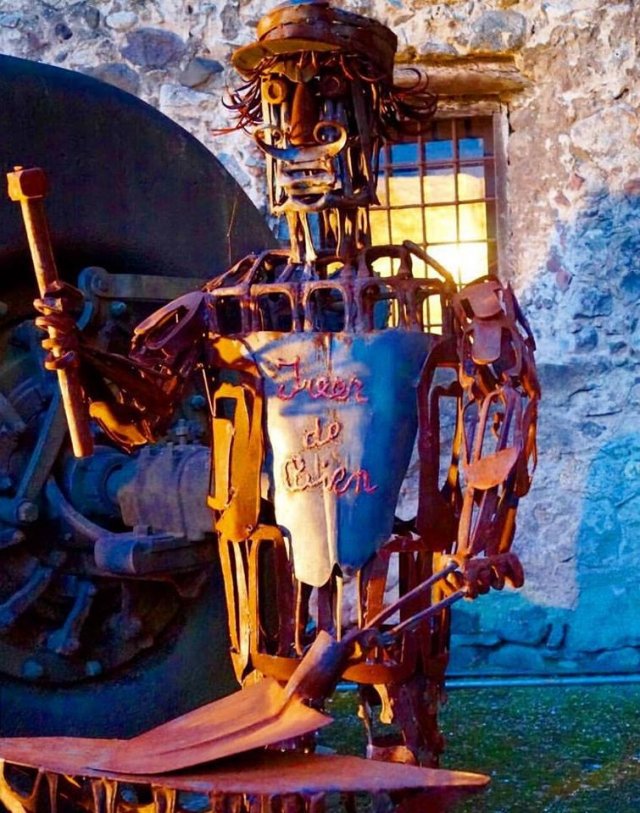The Smithy Museum, together with the Mill Museum, became the initial and primary core of the Bienno Ethnographic Iron Museum, Folk Arts, and Traditions in 1988.
The village's medieval center bears witness to historic iron working.
Today, the nation is known as the Ancient Village of Magli.
Bienno's whole territory is rich in buildings that housed flourishing forges and is distinguished by the course of the Vaso Re, the artificial canal that once watered all of the country's forges and now defines the progress of a specific route through the hamlet.
The structure is located in two forges owned by the Morandini "Stefani" family, later acquired by the Panteghini family and purchased by the Municipality of Bienno in 1985.
The forges have their origins dating back to the 17th century.
The building stayed in use until the 1980s.
Bortolo Mendeni, the final padèlélr (blacksmith who crafted pans), changed the forge from cavatura to scartadura.
The manufacturing of pans was substituted by the manufacturing of agricultural tools.
The whole room is tall, darkened with smoke and has a paved floor, situated inside a big quadrangular building next to the Vaso Ré.
The structure is split into two levels by a loft and consists of two museum sections and an area set aside for educational purposes.
On the ground floor, you can explore panels, videos, and tools that allow you to follow the journey of the Iron Road, from mining the ore to creating the final product.
The mezzanine area displays artifacts related to metal mining activities, discovered in high-altitude mines and ancient melting furnaces
The forge is shown in its initial condition in the second part, with tools such as hammers, knitting machines, shears, ovens, pliers, tongs, and various completed items like spades, shovels, hoes, and buckets
The Fucina Ludoteca and the School of Forging are located in close proximity to the Fucina Museo.
Today, the famous and thriving blacksmith group known as 'Fréar dè Bién' exists, and hammers continue to be utilized for live showcases of craftsmanship, yet they have
faded away with the swift march of time.
OPENING HOURS:
SUMMER (from 01 April to 31 October)
From Tuesday to Sunday: 09:30 - 12:30 / 14:30 - 17:30
Monday: CLOSED
WINTER (from 01 November to 31 March)
From Tuesday to Sunday: 09:00 - 12:30 / 14:30 - 17:30
Monday: CLOSED
